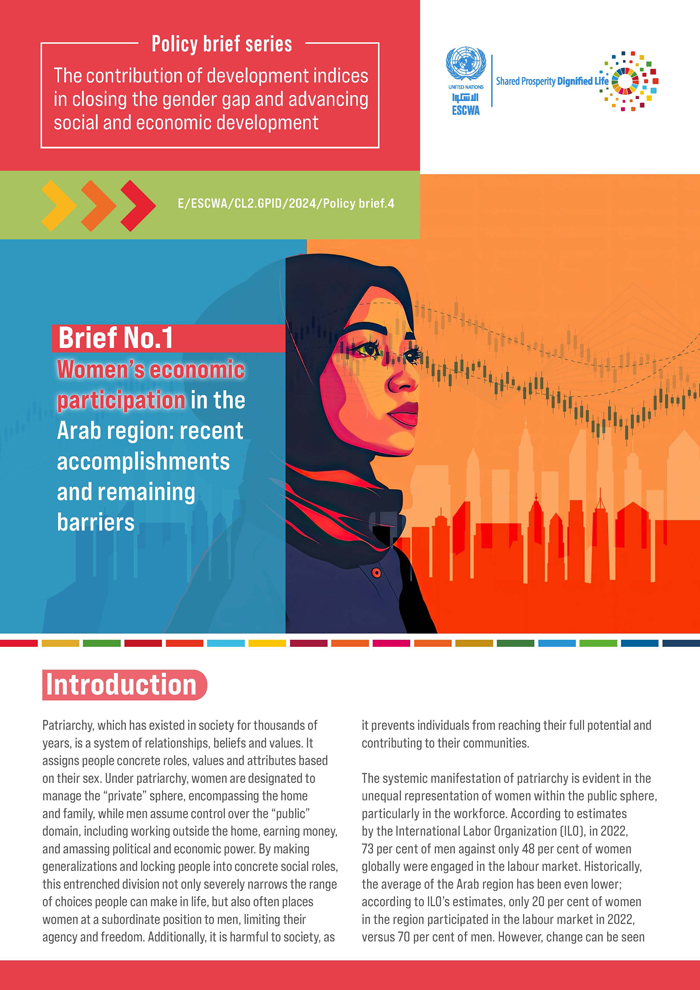
ESCWA Publication: E/ESCWA/CL6.GCP/2021/TP.11
Country: Arab region
Publication Type: Reports & studies
Cluster: Governance and Conflict Prevention
Focus Area: Inclusive development
Initiatives: Partnerships for Agenda 2030, Governance and institution building
SDGs: Agenda 2030
Keywords: Health, Income, Governance, Environment, Human development, Sustainable development, Statistical methodology, Quantitative criteria, Measurement, Life expectancy, Indexes, Environmental health, Education, Development, Climate change
Development challenges index: statistical measurement and validity
February 2022
This paper introduces the Development Challenges Index (DCI). This index is a comprehensive measure of development that takes into account the quantitative and qualitative aspects of the components of the Human Development Index (health, education and income), environmental sustainability and good governance. The DCI serves as a tool to track developmental challenges and help policymakers assess their national policies.
The adjustment of the components of the HDI components by quality and the inclusion of two additional dimensions to measure development are justified conceptually. Previously, the focus on quantitative aspects was justified due to the presence of profound quantitative shortfalls in human development. However, countries have moved up the ladder of human development and made major progress in closing these gaps; today, the issue of quality is more important. Additionally, the environmental threats that the world is facing pose a serious challenge to social and economic well-being, since environmental sustainability is an essential element of human development. Lastly, freedom of agency, which is important on its own and as an instrument to enhance well-being, is linked to freedom of expression, democratic space and participation, which cannot be ensured without good governance and institutions.
Related content
Inclusive development
,
This paper introduces the Development Challenges Index (DCI). This index is a comprehensive measure of development that takes into account the quantitative and qualitative aspects of the components of the Human Development Index (health, education and income), environmental sustainability and good governance. The DCI serves as a tool to track developmental challenges and help policymakers assess their national policies.
The adjustment of the components of the HDI components by quality and the inclusion of two additional dimensions to measure development are justified conceptually. Previously, the focus on quantitative aspects was justified due to the presence of profound quantitative shortfalls in human development. However, countries have moved up the ladder of human development and made major progress in closing these gaps; today, the issue of quality is more important. Additionally, the environmental threats that the world is facing pose a serious challenge to social and economic well-being, since environmental sustainability is an essential element of human development. Lastly, freedom of agency, which is important on its own and as an instrument to enhance well-being, is linked to freedom of expression, democratic space and participation, which cannot be ensured without good governance and institutions.



